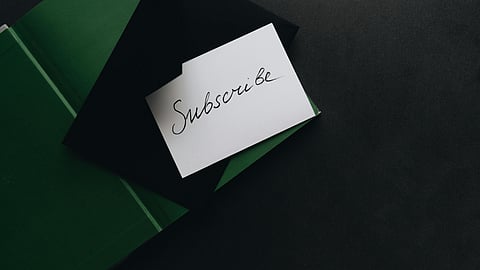
- LIFESTYLE
- FASHION
- FOOD
- ENTERTAINMENT
- EVENTS
- CULTURE
- VIDEOS
- WEB STORIES
- GALLERIES
- GADGETS
- CAR & BIKE
- SOCIETY
- TRAVEL
- NORTH EAST
- INDULGE CONNECT

Think about it—how many things do you actually own anymore? Your favourite movies? Probably on Netflix. Music? A Spotify playlist away. Clothes? Perhaps rented. Even friendships have been gamified with dating and networking apps offering premium memberships for ‘better connections’.
Subscription-based living is no longer limited to entertainment—it’s in every part of our lives. From meal kits to furniture rentals, digital storage to self-care boxes, the idea of ownership is slowly being replaced by access. But with everything available at the tap of a button, are we truly happier, or just stuck in a never-ending payment cycle?
The rise of subscriptions is fuelled by convenience, flexibility, and the desire for variety. Why commit to a single designer handbag when you can rent a new one every month? Why buy an expensive coffee machine when you can have artisanal brews delivered weekly? This trend is particularly popular among Gen Z and millennials, who prioritise experiences over possessions. The idea of having less clutter, fewer commitments and instant access to premium services makes the subscription model incredibly appealing. Plus, in an age where people move cities (and jobs) frequently, renting makes more sense than lugging around a lifetime of belongings.
But there’s a catch. The more we subscribe, the less we own. Our entertainment disappears if we cancel a streaming service. Our wardrobes shrink if we stop a rental plan. And those convenient subscriptions can quickly add up—turning into a financial burden rather than a lifestyle upgrade. There’s also the psychological impact. The joy of owning something, of building a collection, or of having a personal investment in our belongings is slowly fading. Instead, we’re constantly cycling through temporary experiences—trading stability for the thrill of something new.
As subscription culture continues to expand, the real question is—will we ever go back to ownership? Or are we headed toward a future where everything from homes to relationships operates on a subscription model? For now, the choice is ours. But as our monthly bills pile up, it’s worth asking—are we subscribing to happiness, or just paying for the illusion of it?